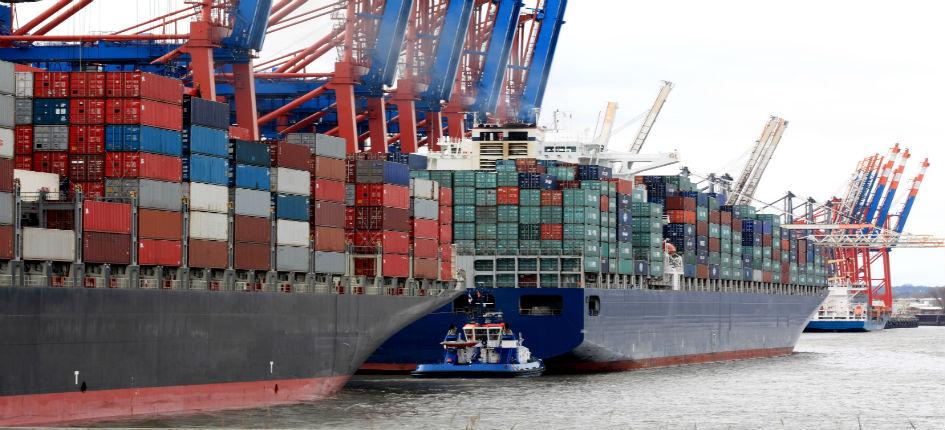
Chile has customs’ regimes which aim to improve the competitiveness of the country in foreign trade and protect customers and the environment. The most relevant are explained in this overview. You can also download it as a PDF.
General
General
The process of clearance in Chile can be quite expeditious. Given complete documentation, it usually takes an average 48 hours for air shipments and 36 hours for sea shipments.
Chile generally applies a Most favoured nation (MFN) tariff of 6% on imports. However, based on the Free Trade Agreement in place between Chile and EFTA countries, no MFN is applied for Switzerland for most of the products. S-GE offers concrete information about tariffs bases on the customs number / HS-Code
For some agricultural products, it maintains a price band system. Importers must pay VAT of 19% based on the Cost, Insurance and Freight value (+ duties) at the point of entry.
All commercial imports must be accompanied by the following documents:
- Original Bill of Lading or AWB, consignment note or air waybill, certifying the product's ownership by the consignee.
- Original commercial invoice, proving the sale of the goods and its values (it’s important that the invoice contains the Purchase Clause “Incoterms”).
- Affidavit of the importer on the price of the goods; form provided by the customs agent.
- Mandate constituted by the only endorsement of the original bill of lading or AWB (airwaybill).
If the import refers to food products (for human consumption or animal products) or cosmetics, the supplier must send the sanitary certificates validated by the sanitary authorities of the country producing the goods (see chapter “Prohibition of specific products”).
The verification of the information provided in the declaration and physical inspection of the goods to be imported is based on the principle of reasonable doubt.
The National Customs Service has overall responsibility for the administration of import procedures and the collection of all foreign-trade-related taxes (i.e. value-added tax).
The website of the Chilean National Customs Service (www.aduana.cl) provides trade statistics, information on import procedures, international economic agreements, and information for travelers and immigrants.
Customs Agent
Customs agent
In order to reduce the processing times, the customs regulations in Chile require the contracting of a qualified and registered Customs Agent (“Agente de aduana”) for all commercial imports over USD 3.000. The Customs Agent performs the procedures, processes and other operations to ensure an expedited entry of goods. A full list of registered customs agents including contact details is provided at the website of the Chilean National Customs Service (Aduana) www.aduana.cl (English and Spanish).
However, even with an import less than USD 3.000, the Customs Agent can carry out the process, at the request of the customer or courier. Especially when it comes to products that require sanitary visas complementary to the customs process.
The fees for the services of a Customs Agent are not fixed and subject to free market negotiations on a case by case basis. Common criteria such as the nature of the goods (e.g. with chemicals, food or medicines require to obtain a sanitary authorization), the volumes of operations, support requirements in house, etc. are considered. As a reference, a minimum operation fee of approximately USD 120 is normally applied.
Prohibition
Prohibition of specific products
For the protection of human health, animal and plant life as well as the environment, for imports of meat, seeds, plants, vegetables, soil and other plant and animal products (cheese, milk, yoghurt, etc.), special regulations need to be followed and in some cases permissions are necessary.
Animals and animal products can only be exported after validation of a sample health certificate between the Chilean authorities and the Swiss Federal Food Safety and Veterinary Office (FSVO). Currently there is a certificate for dairy products and products containing milk ingredients validated between Switzerland and Chile. Companies wishing to export to Chile must be registered in the list of approved company for import. For dairy products, there are currently 10 Swiss companies registered. To get registered, please contact the FSVO or the cantonal enforcement authority (https://www.blv.admin.ch/blv/en/home/import-und-export/export/lebensmittel.html).
These regulations are strictly overseen and administrated by the government’s Agriculture and Livestock Service (SAG): www.sag.cl (Spanish). This website contains information on phytosanitary requirements of different countries as well as on import requirements for agricultural goods.
Additional prohibition of import applies to:
- Used vehicles which are not of the same year
- Used and retreaded tires
- Asbestos in any of its forms
- Pornography
- Toxic industrial waste
- Goods that are dangerous for animals, for agriculture or human health
- Weapons
Samples & guarantee
Import of samples and guarantee covered goods
In general all merchandise that enter as samples, must be accompanied by a proforma invoice valued at the market price.
The same criteria applies to the import of parts, spare parts and merchandise that are sent at no cost to the importer due to a guarantee. For customs purposes, goods imported under guarantees pay taxes. However, the products can be discounted (but not to 0.-) and taxes will be paid on that price.
Transit
Goods in transit
Goods in transit must be accompanied by a Declaration of Transit and by the International Freight Document-Transit Declaration; the latter is a LAIA4 document. Goods for exhibits (e.g. watches) or temporary stay (e.g. racing horses) may enter into Chile with an ATA Carnet. The ATA Carnet is issued by the Chamber of Commerce in Switzerland and is valid for one year.
Free trade zones
Free trade zones
Specific procedures for import as well as for goods in transit apply to Chile’s two free trade areas: the free trade area of Iquique (ZOFRI) in the northern tip (Region I) of Chile and the free trade area of Punta Arenas in the southern tip (7th Region).
Companies incorporated in Chile and operating in these zones are eligible for 100% exemption from corporate tax and custom duties and benefit from an excellent manufacturing infrastructure and export facilities.
Organic products
Mutual recognition of organic (bio) products
The Swiss Federal Office for Agriculture (FOAG) and the Chilean SAG recognize the "equivalence of the organic production regulations and the corresponding control systems" of both countries. This means that organic products produced, manufactured, processed or packaged in Switzerland can be marketed in Chile without further checks. The same applies to the marketing of Chilean organic products in Switzerland. Exceptions are animal organic products with the exception of beekeeping, for example honey.
Labeling & marking
Labeling and marking requirements
Decree No. 977 outlines, amongst others, the applicable regulations for packaging, labelling and storage of food for human consumption. It states that food products must have labels in Spanish, indicating ingredients, weight, date of manufacturing and country of origin.
Since June 2016, all food items which exceed defined levels of energy, sugar, salt and saturated fats require additional labelling. Responsible for the correct labelling are the producers, distributors and importers of the products. The regulation also restricts the sales and marketing of these products. For more information see: “Reglamento Sanitario de los Alimentos” (Spanish).
There are also specific requirements for canned food, shoes, electric machinery, liquid and compressed natural gas equipment (LNG and CNG), plastics, wines and alcoholic beverages, textiles and apparel, wheat flour, detergents and insecticides for agricultural use.
The “Instituto Nacional de Normalización” (National Institute of Normalization) sets standards and provides information on standards and regulations by product category: www.inn.cl (Spanish).
Pharmaceutical and cosmetics
Registration procedures for pharmaceutical and cosmetic products
Pharmaceutical products, food for medical use, and cosmetics must be authorized and registered by the Public Health Institute: www.ispch.cl (Spanish). This website has information on norms, registered products and provides registration forms.
Food products for medical use must obtain an authorization for sale (“resolución sanitaria”) from a regional health service when a product is introduced to Chile. The authorization can take between 2-3 weeks to be issued and requires the payment of a small fee. Any regional authorization is valid for the entire country, but the same procedure must be followed for each new shipment. After 3 shipments and a special analysis by the health service, an authorization allowing the product to go on sale more quickly can be obtained. For further information: Health Service of the Metropolitan Region of Santiago: www.asrm.cl (Spanish). This website has information on health, on procedures for registration and provides the corresponding forms.
Do you need further information?
Please Contact the Swiss Business Hub Chile
c/o Embassy of Switzerland in Chile
Américo Vespucio Sur 100, piso 14
Las Condes, Santiago
Chile
+56 2 2928 01 00




